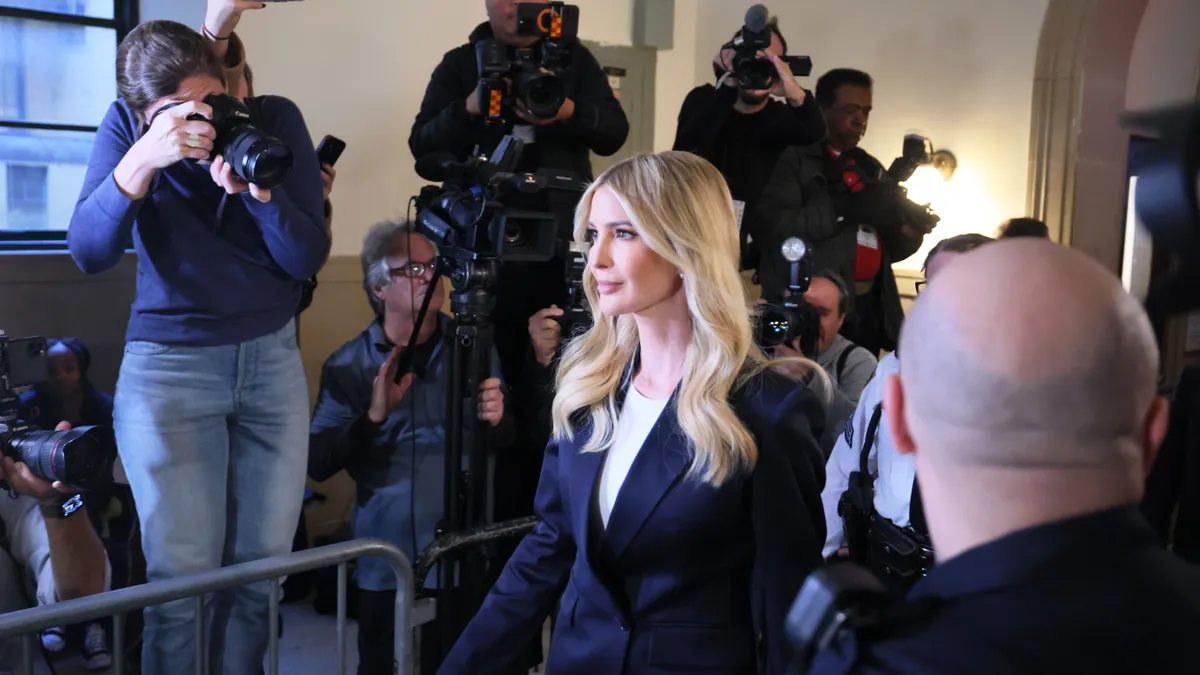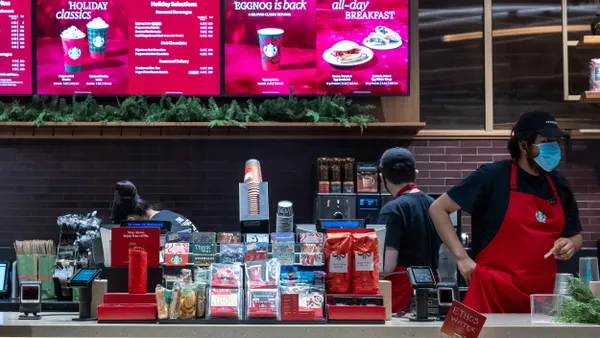A measured Ivanka Trump, the eldest daughter of former President Donald Trump, steadfastly testified Wednesday in the civil fraud case against her family’s real estate empire that she largely did not remember multiple emails and documents which revealed her close involvement with the finance team and lenders in getting multi-million dollar commercial real estate loans.
Just as her brothers Eric Trump and Donald Trump Jr. sought to distance themselves from accounting and financial reports when they took the stand last week, Ivanka Trump — who rose to become EVP at the Trump Organization before stepping down in 2017 and who is not a named defendant — claimed not to have substantive knowledge of Generally Accepted Accounting Principles or much interaction with the company’s annual Statements of Financial Condition, even though they were submitted in deals she was involved with.
Asked by Assistant Attorney General Louis Solomon if she was familiar with GAAP, Ivanka Trump, after testifying she earned a Bachelor of Arts in real estate and finance from University of Pennsylvania’s Wharton School, said she didn’t recall having much “experience” with accounting standards in her professional life.
“I haven’t thought about GAAP much since college,” said Trump, wearing a dark suit and what appeared to be pearl earrings. “I recall being introduced to the ideas when I was in university.”
But Solomon persisted in presenting her with numerous series of emails and documents, many which extended back to 2011 and 2012. They painted a different picture of her as a financially savvy executive who was a key figure in not only promoting but financing some of the company’s top properties, including the Old Post Office property in Washington D.C. that was converted into the Trump International Hotel Washington, D.C., The Doral Golf Resort & Spa in Florida and the Trump International Hotel & Tower in Chicago.
For example, in a series of email exchanges in 2011 between Ivanka Trump and Deutsche Bank lenders, the company first sought to obtain a loan from the commercial real estate arm of the bank but then ultimately obtained better terms from the personal wealth management side.
In a Dec. 15, 2011 email to Ivanka Trump from Rosemary Vrablic, a managing director of Deutsche Bank’s private wealth management unit, the banker outlines the proposed terms of financing for the Florida Doral property. That included a commitment of up to $125 million with a five-year term at an initial rate of Libor+ 2.25% or the prime rate and a lower rate of Libor+ 2.0%, or the prime rate minus .25%, during the later amortization period.
“We are thrilled to be able to provide you with this general framework for this deal,” Vrablic said, noting that they had dubbed the property “Project Eagle” for confidential reasons.
The terms outlined in the email also required the guarantor of the loan to maintain a minimum net worth of $3 billion and a full principal and interest and operating expense personal DJT guaranty, something that Jason Greenblatt, a former Trump executive and chief legal officer for Trump, pushed back on in an email to Ivanka Trump that copied ex-Trump CFO Allen Weisselberg and David Orowitz, a former Trump EVP.
But Ivanka Trump appeared to be eager to move forward, as evidenced in an earlier email with the same subject heading that was sent to the same trio, including Weisselberg.
“It doesn’t get better than this,” she wrote to the group, referring to the Deutsche Bank loan proposal. “Let’s discuss ASAP. I want to call rosemary and thank her but if there are any asks I would like to give her an indication. I am tempted to not negotiate this though.”
Ivanka Trump was originally a named defendant in the case, but an appeals court dismissed her from it in June because the attorney general missed a deadline for the filing, The New York Times reported.
The trial, now stretching into its second month, alleges that Trump, along with his two adult sons and senior executives including Weisselberg, falsely inflated his net worth by billions of dollars to secure bank loans and insurance for the Trump Organization on more favorable terms than would otherwise have been available.
Presiding Judge Arthur Engoron in September ruled that the AG’s office had established that Trump and the other defendants were liable for fraud. The trial will determine what if any penalties will be paid and whether Trump will be barred from doing business in the state of New York.













